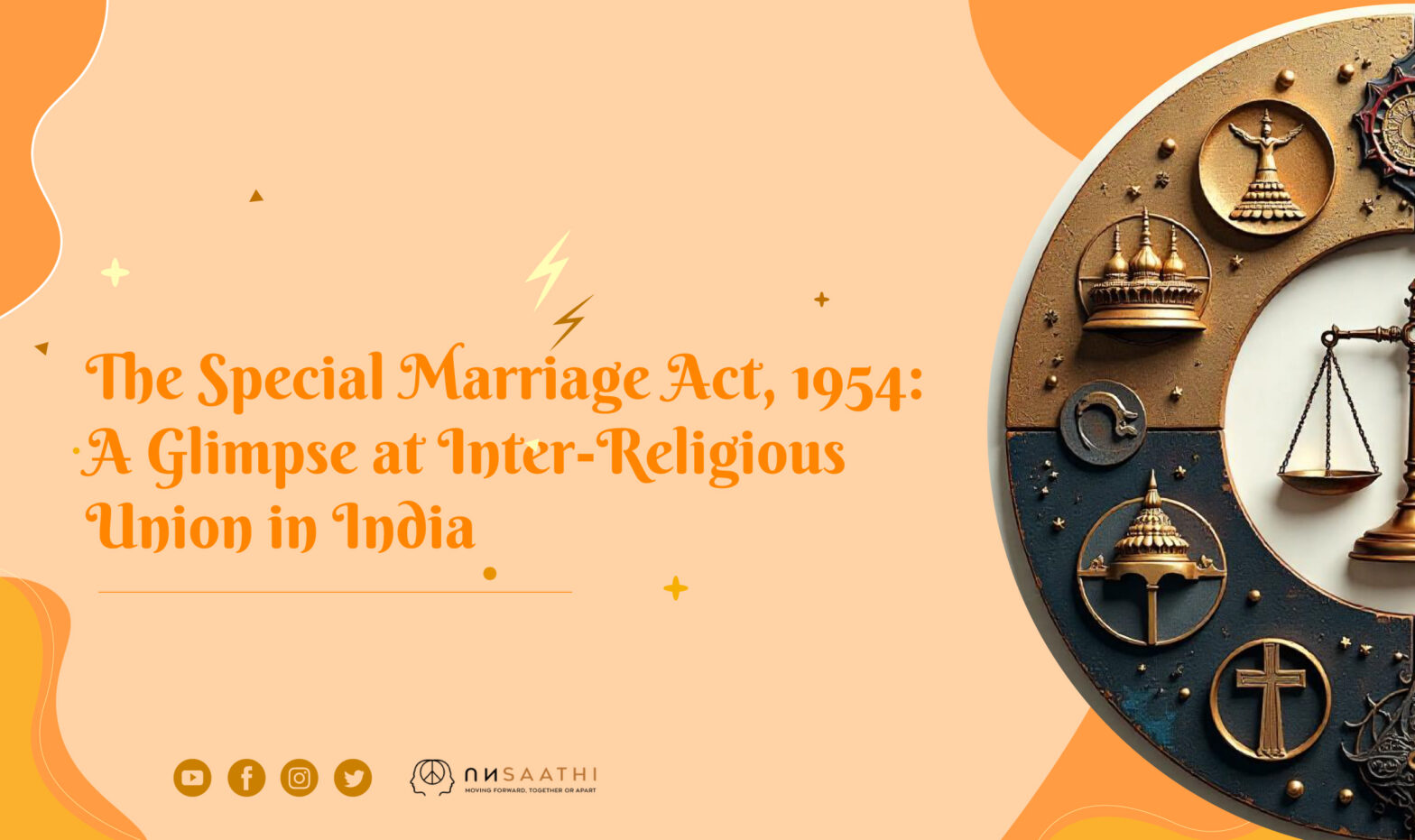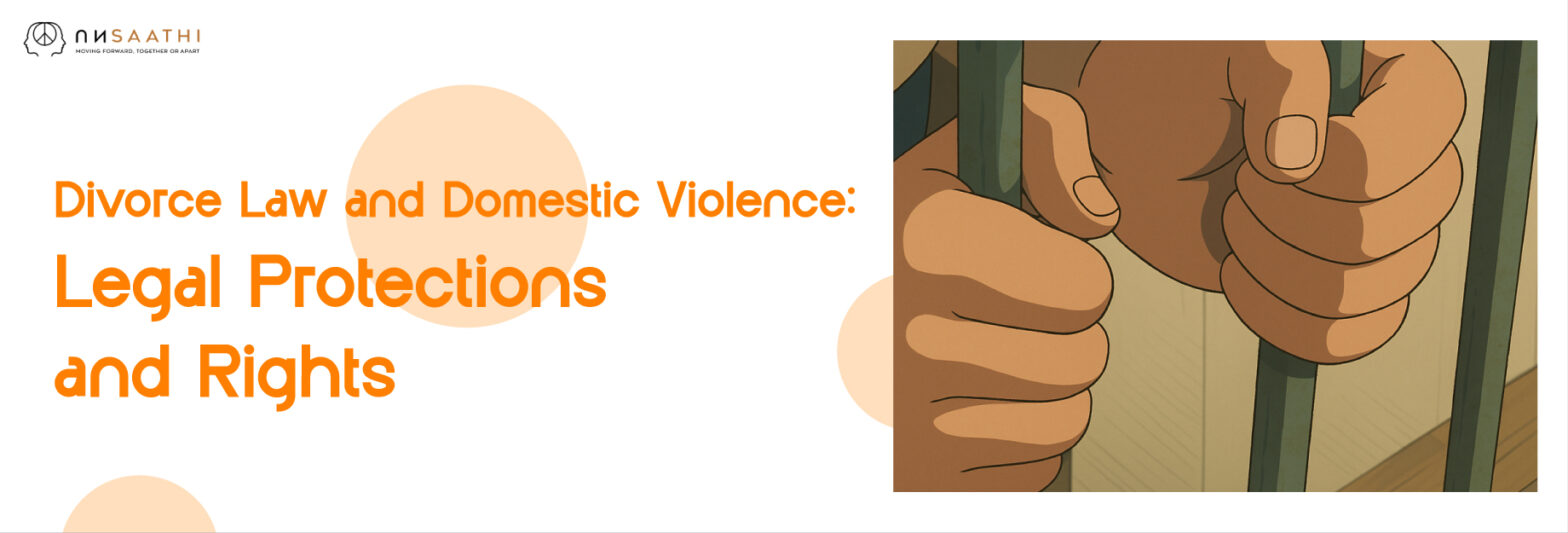How to Challenge a Divorce Settlement: Legal Options and Procedures

The finalisation of a divorce settlement by a family court in India includes immense legal potency with which the former spouses settle down to a new life post-divorce. It comprises critical legal issues such as the division of assets and liabilities, child custody and visitation rights, and alimony or maintenance. However, notwithstanding the presumption of finality, there can be cases where the settlement is deemed by one party or the other as unfair, inequitable or obtained by questionable means. According to Indian law, the grounds and procedure for contesting a divorce are the way to challenge the divorce settlement. A complete guide on what can be done to challenge a divorce settlement in India
How is a Divorce Settlement Binding?
Before we look at how to challenge a settlement, it is vital to understand why they are usually binding. However, suppose both parties are legally divorced and agree to the terms of a divorce settlement, and such settlement is ratified and incorporated into a decree of court.
In that case, it becomes a legally consummated, enforceable instrument.
Courts favour the finality of such agreements because they reflect the parties’ agreement to settle marital disputes without protracted litigation. It is the principle of the sanctity of contracts and the need to end emotionally charged litigation that makes divorce settlements binding.
Grounds to Challenge a Divorce Settlement
Although contesting a finalised divorce settlement is daunting, there are compelling grounds in India for a court to revisit or cancel a settlement agreement. These grounds are mainly related to problems that go to the consent’s authenticity or the result’s fairness.
Fraud or Misrepresentation: Along with the tasks, this may include examples of fraud or misrepresentation. Suppose one party fails to disclose meaningful financial information, misrepresented assets or liabilities, or provided false information that had a material impact on the other party’s decision to enter into the divorce settlement.
In that case, it may be a ground for challenge. Suppose one spouse concealed significant assets during negotiations, resulting in an unfair property division, for example. In that case, the aggrieved spouse may want to challenge the settlement if they later discover the concealment.
Coercion or Undue Influence: A settlement agreement is binding only if the parties to the contract agree freely and voluntarily. If the person agreeing has been forced, threatened, or unduly pressured by the other party into the stipulation against their will, the accord can be challenged. Coercion or undue influence is notoriously difficult to prove, but it requires showing that the applicant’s free will was overcome in the negotiation process.
Mutual Mistake of Fact: If both parties had a fundamental misunderstanding of a material fact when entering into the settlement, and this mistake substantially affected the terms of the agreement, a court may consider voiding it. So, say one side knew about a boatload of debt, which neither side knew about, and the boatload of debt would affect how the parties agreed to divide the debt.
Lack of Legal Capacity: If either party did not have the legal capacity to create a binding agreement at the time of the settlement (for instance, if one party was mentally incapacitated or was a minor and not represented), the settlement may be challenged.
Unconscionability or Gross Inequity: In very narrow circumstances, if the terms of the settlement are so grossly unfair and inequitable as to shock the conscience of the court, the settlement may be found unconscionable and reviewed. But courts are generally reluctant to unsettle settlements simply because they seem unfair — unless they present a level of inequity so great that it looks like coercion or fraud.
Change in Circumstances (Limited Application): Though a great change in the scenario normally grounds modification of terms/clauses (support or alimony) that are not the whole settlement, once a marriage settlement is final, small changes in circumstances are generally ignored; extreme or unexpected changes in circumstances that go to the underlying premise/signature of the settlement are very rarely a basis to challenge the whole settlement.
Challenging a Divorce Settlement: Legal Options and Procedures
The legal options and procedures available will vary depending on the stage of the divorce proceedings and the specific grounds for the challenge:
Challenging Before Final Order/Decree (Mutual Consent Divorce)
Divorce by Mutual Consent
In this case, both parties have to file a joint petition. Even after the first motion is filed and a cooling-off period is granted by the court (usually six months), either of the parties can withdraw their consent before the final decree of divorce is passed. If either party withdraws her consent, the mutual consent divorce cannot proceed, and the settlement agreement, contingent on the agreement being granted, becomes void. In that sense, the party seeking to challenge the settlement has done so by revoking consent to the divorce and, by doing so, effectively ensures, for all intents and purposes, that the divorce never happened in the first place.
Notice of Appeal from the Decree Incorporating the Divorce Settlement
Once a divorce decree that includes the settlement agreement has been issued, disputing it becomes more complicated. You may also file an appeal against the decree before the super court (usually the High Court). However, the grounds for appeal must fit within the above categories (fraud, coercion, mistake, etc.).
Period D Limit: The appeal needs to be filed within the prescribed limit from the date of the decree. This timeline is based on the rules of each particular High Court but is usually between 30 and 90 days. Failing to meet this deadline may prove fatal to the appeal.
The grounds in the form of contentions should be clear enough in the Appeal Petition as to why the challenge is brought against the settlement and the decree, with the evidence and legal arguments.
Filing and Service: File the appeal petition with the appropriate court of appeals with any notices and accompanying court fees. You’ll also need to serve the petition on the other (your ex-spouse).
The appeal: The appellate court reviews the lower court records, the settlement agreement, and the positions of both parties. It will also likely be allowed to hear oral arguments of the counsels. The appellate court can either affirm, modify or set aside the decree passed by the lower court.
Filing a Petition for Review: Under restricted conditions, a party can appeal to the same court which issued the original decree. Generally, the review petition shall be entertained only in case of discovery of new and vital evidence which was not in the party’s knowledge at the time of the decree or there is a mistake or error apparent on the record. There is no chance to re-hear the whole case, and the scope of review is limited.
How to File a Suit to Set Aside the Settlement Agreement
Under some circumstances, especially when significant allegations of fraud or coercion and detailed proof and examination are required, a separate civil action is brought seeking a declaratory judgment that a settlement agreement is rendered void or voidable based on the claimed vitiating factors.
This makes for a fuller trial where evidence may be led and witnesses called. If the suit succeeds, the settlement agreement can be invalidated, which could result in a new determination of the terms of separation.
- Evidentiary Requirements: A successful challenge to a divorce settlement demands compelling evidence in support of the claimed grounds. This evidence may include:
- Financial Documents: Statements, deeds, tax returns, and valuations to show the hiding or manipulation of assets.
- Communication Records: Emails, text messages and tapes (if admissible by law), potentially demonstrating pressure or undue influence.
- Medical Records: To show a lack of legal capacity at the time of the settlement.
- Witness Testimony: Affidavits or oral testimony from people who can corroborate the claims of fraud, coercion or mistake.
The Significance of Legal Representation
Fighting a divorce settlement is not an easy task, as there are legal intricacies regarding family law, civil procedure and evidentiary rules that a litigant has to contend with. You should definitely consider consultation with an experienced family law advocate who can evaluate the strength of your case and recommend the best course of action. They also help collect and compile the requisite evidence.
Further, prepare the necessary legal documents and represent you effectively in court. You are also taught how to deal with the procedures and be lawyer-compliant.
Effects of a Successful Challenge
However, when a divorce settlement is successfully challenged, the court may set aside or modify the original settlement agreement and, consequently, the decree. This would only require a new negotiation over or adjudication of the separation terms — such as sharing the structure of property, custody of children and maintenance. The results of this process will be based on the unique facts and circumstances of the particular case and the governing laws.
Conclusion
It is very challenging to challenge a divorce settlement in India; it is a legally complex process involving a very high burden of proof. Although the law does take into account that, in cases of fraudulent, coercive, or fundamentally erroneous settlements, it should not take into force the need to overturn a settled agreement comes with a high burden of proof and adherence to defined legal processes. An insight such as the best legal strategies, why they may be challenged, or the need for experienced legal counsel would all be critical in life-changing actions. When pursuing the challenge to a divorce settlement, one must consider the cost, time, and potential outcome to make decisions based on a fair and just resolution of a marital dispute.



